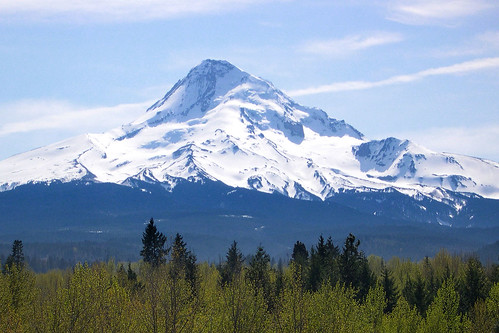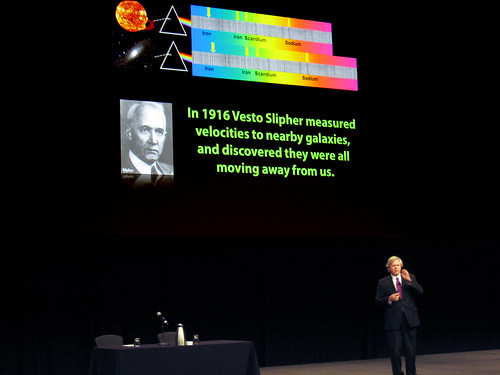

| Archive Blog Cast Forum RSS Books! Poll Results About Search Fan Art Podcast More Stuff Random |
|
Classic comic reruns every day
|
1 {photo of the Whipple Museum of the History of Science, Cambridge University}
1 Caption: Greatest discoveries
|
First (1) | Previous (3331) | Next (3333) || Latest Rerun (2891) |
Latest New (5380) First 5 | Previous 5 | Next 5 | Latest 5 Annotations theme: First | Previous | Next | Latest || First 5 | Previous 5 | Next 5 | Latest 5 This strip's permanent URL: http://www.irregularwebcomic.net/3332.html
Annotations off: turn on
Annotations on: turn off
|
Science in schools is traditionally split into four broad fields: biology, chemistry, geology, and physics. Each of these four is a grand subject, encompassing many topics and, in later education, many subfields. Sometimes astronomy is added as a fifth separate field, sometimes it is included under the umbrella of physics.
Today I want to ask the question: What is the greatest discovery ever made in each of these fields of science? (I'll have a go at answering it too!)
 Marine iguanas evolved to dive in the sea and eat seaweed. |
Anyway, biology is the study of life - of animals, plants, fungi, protozoa, bacteria, and a few other categories which are less well known. A biologist works to find out how living things work, how they grow and feed and interact and reproduce. How they sense their surroundings, how they communicate, how they move. How their internal structure is laid out. How the body of a living thing functions on a chemical level. And here we start to approach the murky line between biology and the next of our four (or five) sciences: chemistry.
Biology has made great strides over the centuries. Our ancient ancestors knew the very basics of how life works - animals need food, and so on. We have since learnt that blood flows around a vertebrate animal body in a closed loop, pumped by the heart, carrying oxygen and nutrients to cells so they can carry out the chemical processes of life. We've learnt that the brain operates using electricity. We've learnt that viruses can inject their DNA into the cells of living organisms and rewrite parts of their genetic sequence to co-opt the cells into producing copies of the virus.
But what is the biggest, greatest, grandest discovery ever made in the field of biology? Any answer is to some degree subjective, but I suspect most, if not the vast majority of biologists would agree that the answer is the theory of evolution.[1]
Without understanding evolution, we are at a loss to explain many of the things we know about how living organisms work, how their physical components are laid out, how they interact, and how they have changed over time. If life on Earth had not evolved from a common ancestry, then many things in biology make no sense whatsoever. (I could compile a list of such things here, but other writers have done so and this is not the main point I want to make today.) Once we understood evolution, the over-arching structure of biology made sense for the first time in history. It was like groping around in a dark closet, and then suddenly turning the light on, so we could see the relationships between all living things and really understand how that happened.
Greatest discovery in biology? Evolution, hands down.
 Chemistry display in a science shop. |
Over the millennia we have learnt many things about chemistry. How to formulate materials with desirable and useful properties. How to clean things, how to stop them corroding, how to analyse things to determine what they are made of so we can reproduce them, and how chemical reactions drive the processes of life.
But what is the biggest, grandest, greatest discovery ever made in the field of chemistry? I have talked about this topic at length over several past annotations, because it is so fundamental to our understanding of the material universe. Again, I have chosen one possible answer, but I think many chemists would agree. Atomic theory.
Early dabblers in what we now regard as chemistry were the alchemists. They combined a desire to understand matter with the best thing they had at the time, a semi-mystical approach. This led to many wrong turns and fundamental misunderstandings of the physical world. The work of people like Antoine Lavoisier, John Dalton, and Amedeo Avogadro around the beginning of the 19th century led to the great breakthrough. They compiled the evidence that matter was made of tiny, submicroscopic particles, which were named atoms.
Just as evolution's effect on biology, once we understood the existence of atoms, it was like a veil lifting from our eyes. Many things which could not be explained before all made sense. We could make predictions about the behaviour of matter which could be tested, and turned out to be correct. Atoms explained why substances reacted and combined in the ways they did, the differences between solids, liquids, and gases, and much more besides.
And it just got better over the next couple of centuries as our models of atoms were refined and developed through further experiments, crucially including the discovery of subatomic particles and how they interact. Atomic theory has given us the biggest fundamental insight into understanding matter, of any discovery in chemistry. With it, we understand essentially every chemical reaction we put our minds to, as well as electrical interactions, and much of the interplay between matter and energy, including the extremely important understanding of heat.
Greatest discovery in chemistry? Easy: atomic theory.
 Mount Hood, Oregon. A volcano. |
What is the biggest, greatest, grandest discovery ever made in the science of geology? This one is easy. Without this discovery, virtually nothing about the structure of the Earth makes any sense. With it, everything clicks into place. I'm talking about plate tectonics, with its implied concept of deep time - the fact that the Earth is almost unimaginably old, billions of years old.
Plate tectonics explains how the shapes of the continents came to be, resembling a jigsaw puzzle. It explains why fossils of fish can be found atop tall mountains, and how fossils form in the first place. It explains earthquakes, volcanoes, mountains, valleys, canyons, the shapes of rivers, the compositions of rocks, the shape of the sea floor, the existence of fossil fuels. Things that previously could only be imagined to be the work of random or wrathful gods fell into a consistent picture with a natural explanation.
The vistas opened for us by discovering plate tectonics also gives us the necessary insight to understand and make sense of the fossil record, meshing perfectly with our understanding of life and its evolution over the history of our planet. Looking outward, determining the true age of the Earth also allowed us to get to grips with the age of the sun and the stars and universe around us. Geology is often thought of as a poor cousin of other sciences, but without agreement and consistency between it and biology on the one hand, and astronomy on the other, our knowledge of the universe and of ourselves would be crippled and limited. Discovering that the Earth is billions of years old, giving it time to accumulate the landscape features, the rocks, and fossils we see today, opened our eyes to the possibility that we could understand life and the universe.
So my choice for the greatest discovery of geology: plate tectonics.
Interrupting the alphabetical progression of the four sciences, I am going to divert and treat astronomy as the fifth.
 2011 Nobel Prize winner Professor Brian Schmidt, talking about evidence for the Big Bang. |
But what is the greatest, grandest, biggest discovery ever made in astronomy? Nothing less than the fact that the universe as we know it had a definite beginning, and approximately how long ago that was. The Big Bang.
Where did everything come from? How did the world - the universe - come into being? This is a big question, and people have been pondering it probably for as long as human ancestors have had the capacity to think abstract thoughts. For almost the entirety of our history as a species, we have been unable to answer this question with anything other than myth and legend.
Within just the last hundred years, we have accumulated the observational evidence and theoretical understanding necessary to realise that our present universe had a definite beginning, and that that beginning point occurred approximately 14 billion years ago. We can trace the history of our universe in the galaxies, their apparent motions, and in the radiation that suffuses the entirety of space around us. It is written in the chemical compositions of the stars, and in the radioactive decays of the rocks beneath our feet.
We now understand how stars are born, how they change throughout their lifetimes, and how they die. Stars need millions to billions of years to go through these cycles. The age of the Earth, and the age of the universe (which can be determined independently, and are consistent) give the stars enough time to appear as they do in our sky today - a beautiful confluence of evidence which is consistent across all branches of science.
Some questions remain unanswered. What happened before the Big Bang? Why did the Big Bang happen at all? We have some ideas, but these are at the forefront of science today, and we are still in the process of uncovering the answers. Perhaps some day in the future we will know. For now, we should be joyful that we have uncovered the answer to one of the biggest questions that humans have ever asked. Yes, the universe had a beginning, and we know how long ago it was.
The greatest discovery of astronomy, then, is the Big Bang.
 T. rex's classical physics is superseded by relativity. |
Physics has given us the laws of motion, gravity, conservation of energy, and electromagnetism. These are used every day in a million ways by engineers who design and build our bridges, buildings, vehicles, computers, household appliances, medical devices, communication systems, and everything else we depend on. We understand light, and sound, and electricity, and we can tailor these energies to do amazing things.
But what is the grandest, biggest, greatest discovery of physics? There are two candidates, and even as I write this sentence, I have not decided which one I can possibly choose over the other. So I'll just go ahead and mention both to begin with: the theories of relativity, and quantum mechanics. Relativity and quantum mechanics both emerged at the beginning of the 20th century to address niggling problems which could not be understood using what we now call classical physics.
Relativity concerns the nature of space and time. Essentially, these concepts are not absolute in the sense that we instinctively think about them. When an hour passes for me, it does not mean an hour also passes for you. The rate at which time flows differs for two objects, depending on their relative speed and relative proximity to mass. The mass of an object and the dimensions of an object relative to another object also depend on these things.
We don't notice these counterintuitive effects in our everyday lives because we live in a realm of masses and speeds which are so small that relativity causes changes too small for us to notice. We can measure these changes with sensitive instruments, which shows they really happen. For certain things like plotting the path of space probes, getting GPS navigation to work, or understanding the processes of radioactivity and nuclear energy, we need to take relativity into account to predict the right answers.
Relativity doesn't affect us too much in everyday life, but on grander scales it is essential for our understanding of the universe around us. It provides the framework for comprehending the appearance and behaviour of stars and galaxies and even bigger structures, and feeds directly into answering the questions about the beginning and ultimate fate of the universe. That's pretty big stuff.
Quantum mechanics, on the other hand, deals with the interactions of matter and energy, and on a very small scale. The world of the atom, particles smaller than atoms, and electromagnetic radiation is a very strange place - it does not behave in ways familiar to us on our macroscopic level. Particles and radiation both have properties of both particles and waves. We need to take both into account to fully understand and be able to predict what goes on at the atomic and subatomic levels.
 Me demonstrating physics in front of Isaac Newton's apple tree at Cambridge University. |
Choosing between relativity and quantum mechanics is difficult because really the two of them together show that the greatest discovery ever made in physics is yet to be made. We can see it ahead of us, shadowy in the distance, but we're not there yet. This is because quantum mechanics and relativity do not play well together. Each one as we currently understand it is incompatible with the other. What is needed is a new theory which extends or replaces them both, but leaving their working parts intact - in a similar way to how relativity extended Newtonian (or classical) mechanics and gravity. Newtonian physics is an approximation of relativity which works well in the regime of low speeds and low masses - relativity provided the necessary corrections for high speeds and high masses.
In a similar way, relativity and quantum mechanics work well in the regime of low energies, but become increasingly contradictory at higher energies. To probe the differences, refine our theories, and gain experimental confirmations we need to explore high energy phenomena. This is why physicists are excited about giant particle colliders and the experiments they allow us to do with high energy particles, and also about giant telescopes which allow us to peer back in time to the epoch of the Big Bang and the enormous energies present then. These experiments could, one day in the near future, lead to the greatest discovery physics will have ever made. A theory not just of slow moving things with low mass and low energies, but a "theory of everything".
In the absence of this future discovery, it's now time for me to choose between relativity or quantum mechanics. Without discovering relativity, our space probes might not have reached Jupiter and Saturn, and our GPS system would drift for some mysterious reason and need to be recalibrated every few days. Without discovering quantum mechanics, on the other hand, human civilisation would be stuck with roughly 1960s era technology: we'd all be making phone calls on landlines, watching grainy TV, writing letters to friends on paper, working in offices with pencils and slide rules, playing music on vinyl LPs, and when we wanted to play a game we'd have to invite friends around and pull out a board game, or else deal a hand of solitaire with a pack of cards. If you wanted to find out something, you'd need to visit a library.
Greatest discovery (so far) in physics? Quantum mechanics.
Atomic theory, on the other hand, addresses a question that most of us never really think about. What is the fundamental structure of matter? But the answer is equally as marvellous, and its ramifications are wider-reaching. They underly the very fabric of our human civilisation since the late 19th century. Atomic theory reaches deep into the hearts of stars, into the depths of the distant past, into the DNA within us which controls our evolution, and into everything we engineer and construct and build.
My golden prize goes to atomic theory, with a commendable silver to evolution.
Ask me again next month and my answers may change.
|
LEGO® is a registered trademark of the LEGO Group of companies,
which does not sponsor, authorise, or endorse this site. This material is presented in accordance with the LEGO® Fair Play Guidelines. |